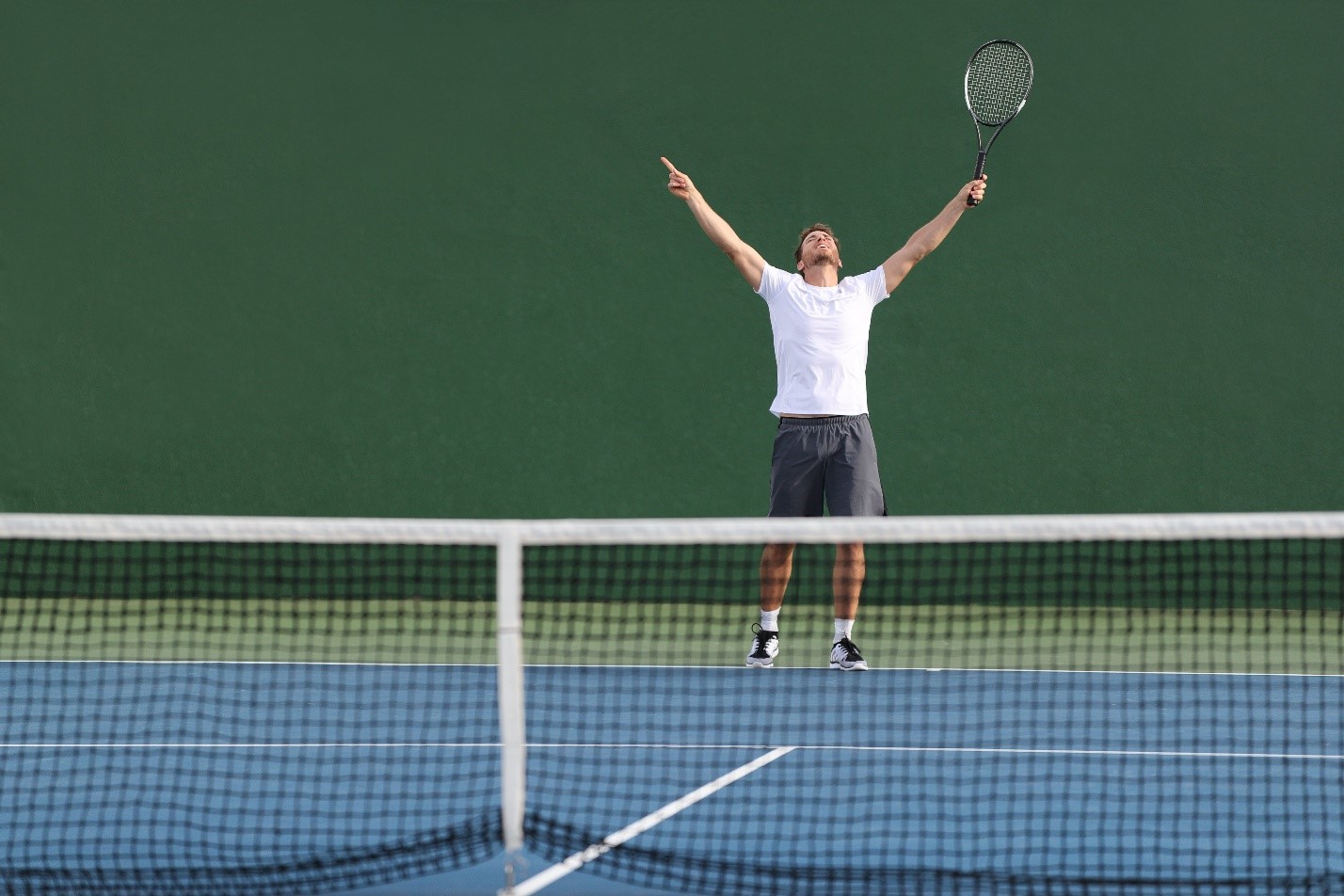Competitive recreational tennis offers a unique blend of physical challenge, mental acuity, and emotional resilience. While technical skills and physical fitness are essential, many players underestimate the psychological aspect of the game. Mental strategies can often be the deciding factor between a narrow defeat and a triumphant victory. Michael Koffler of Shrub Oak International School delves into proven techniques to enhance mental toughness, maintain focus, and manage pressure during competitive matches, empowering you to elevate your game.
Understanding Mental Toughness in Tennis
Mental toughness is the ability to stay composed, confident, and determined, regardless of the situation. In tennis, it involves maintaining a strong mindset through momentum shifts, unforced errors, and tight tiebreaks. Building mental toughness takes practice and self-awareness, but the results can significantly impact your performance.
1. Embrace a Growth Mindset
Adopting a growth mindset means viewing challenges as opportunities for improvement rather than obstacles. Whether you’re learning to perfect your backhand or navigating a high-pressure match, focus on personal development rather than immediate results. Reflect on each game to identify areas of growth, fostering resilience and adaptability.
2. Develop a Pre-Match Routine
A consistent pre-match routine can help you feel grounded and mentally prepared. This could include a dynamic warm-up, visualization exercises, or even listening to music that puts you in a positive mindset. Routines create a sense of control, reducing anxiety before stepping onto the court.
Techniques for Maintaining Focus
Focus is critical in tennis, where matches can be unpredictable and emotionally charged. Staying present and concentrating on each point helps you avoid distractions and perform at your best.
1. Use a Focus Cue
A focus cue is a simple word or phrase that anchors your attention. For example, saying “steady” or “next point” after each rally can help reset your mindset and block out distractions. This mental habit ensures you remain locked into the moment.
2. Break the Match Into Mini-Games
Thinking about the entire match can be overwhelming. Instead, divide it into smaller segments, such as focusing on winning the next two points or holding serve. This approach narrows your focus and makes the game feel more manageable.
3. Master Breathing Techniques
Deep, controlled breathing helps calm your nervous system and sharpen your focus. Try inhaling for a count of four, holding for four, and exhaling for six during breaks. This practice reduces stress and keeps your mind centered during intense moments.
Managing Pressure During Matches
Competitive tennis inherently involves pressure, whether it’s facing a break point or closing out a set. Learning to manage this pressure is key to maintaining composure and confidence.
1. Reframe Pressure as Opportunity
Instead of fearing high-pressure situations, view them as a chance to test your skills. This perspective shift can help you embrace the challenge rather than dread it. Remind yourself that pressure is a privilege—it means you’re in a position to succeed.
2. Focus on the Process, Not the Outcome
Dwelling on the score or potential outcomes can lead to anxiety. Instead, concentrate on executing your shots, maintaining good footwork, and following your strategy. By focusing on what you can control, you’ll feel more empowered and less overwhelmed.
3. Practice Pressure Scenarios
Incorporate high-pressure drills into your practice sessions. Simulate match conditions by setting up situations like serving to save match point or playing tiebreaks. The more familiar you become with these scenarios, the easier they’ll be to handle during real matches.
Mental Recovery After Mistakes
Mistakes are inevitable in tennis, but how you respond to them can influence the outcome of a match. Developing strategies to recover mentally ensures that one error doesn’t spiral into a series of poor decisions.
1. Implement a Reset Ritual
Develop a simple ritual to reset your mindset after a mistake. For instance, you might adjust your strings, bounce the ball a few times, or walk to the back of the court. This physical action helps you release frustration and refocus.
2. Adopt Positive Self-Talk
Replace negative thoughts with constructive affirmations. Instead of saying, “I always mess up,” try, “I’ll adjust and get the next one.” Positive self-talk reinforces confidence and keeps your head in the game.
3. Learn from Errors
Mistakes provide valuable feedback. Reflect on what went wrong and how you can adjust. Viewing errors as learning opportunities allows you to move forward without dwelling on the past.
Building Confidence Over Time
Confidence in tennis is built through preparation, practice, and self-belief. The more you trust your skills and strategies, the better you’ll perform under pressure.
1. Celebrate Small Wins
Acknowledging your progress, no matter how minor, builds a foundation of confidence. Celebrate improvements in your serve, consistency in rallies, or even maintaining focus for longer stretches.
2. Visualize Success
Visualization is a powerful tool for building confidence. Before matches, imagine yourself executing precise shots, moving efficiently, and handling pressure gracefully. This mental rehearsal primes your brain for success.
3. Surround Yourself With Support
Engage with coaches, teammates, or friends who encourage your growth. Constructive feedback and positive reinforcement from others bolster your self-belief and motivation.
The psychology of winning in competitive recreational tennis goes beyond physical skill. By strengthening your mental toughness, honing focus, and mastering pressure, you can unlock your full potential on the court. Remember, tennis is as much a mental game as it is a physical one. With consistent practice and the strategies outlined above, you’ll not only improve your performance but also enjoy the game’s challenges and triumphs.
